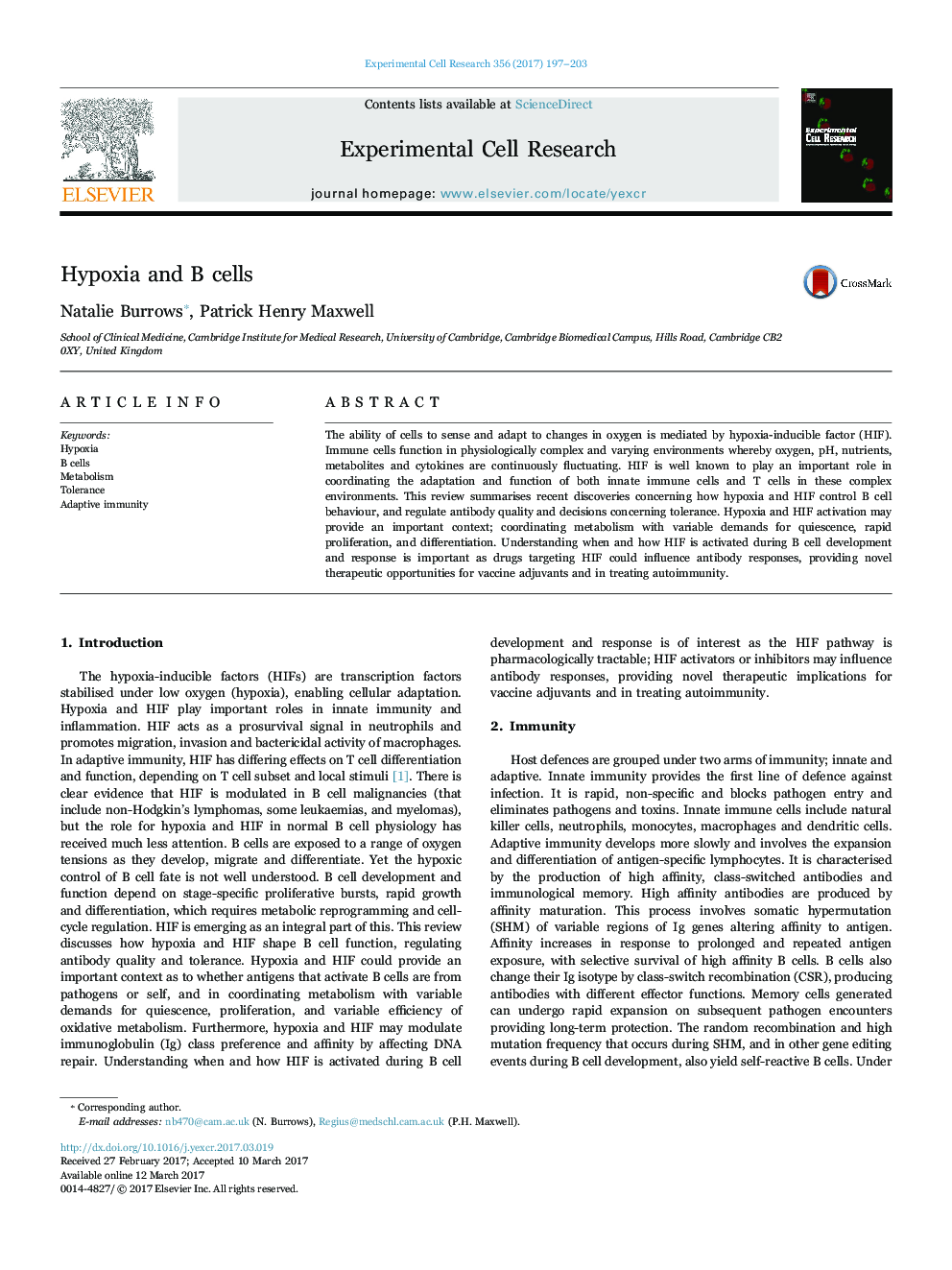| Article ID | Journal | Published Year | Pages | File Type |
|---|---|---|---|---|
| 5526937 | Experimental Cell Research | 2017 | 7 Pages |
The ability of cells to sense and adapt to changes in oxygen is mediated by hypoxia-inducible factor (HIF). Immune cells function in physiologically complex and varying environments whereby oxygen, pH, nutrients, metabolites and cytokines are continuously fluctuating. HIF is well known to play an important role in coordinating the adaptation and function of both innate immune cells and T cells in these complex environments. This review summarises recent discoveries concerning how hypoxia and HIF control B cell behaviour, and regulate antibody quality and decisions concerning tolerance. Hypoxia and HIF activation may provide an important context; coordinating metabolism with variable demands for quiescence, rapid proliferation, and differentiation. Understanding when and how HIF is activated during B cell development and response is important as drugs targeting HIF could influence antibody responses, providing novel therapeutic opportunities for vaccine adjuvants and in treating autoimmunity.
